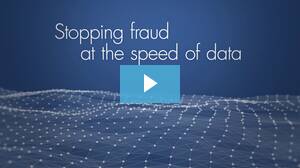Data breaches are happening more frequently and when they are occurring the number of impacted consumers is growing. Not to mention, the scope is widening as droves of sensitive data is filling the dark web for fraudsters to monetize for their next big fraud scheme. This story is all too familiar for banks and credit unions leaders today.
At Rippleshot, we're in the business of proactively protecting our customers from the impact of data breaches, card fraud and other incidents that put your customer's data at risk. We're here to help you protect your own customers. We also recognize the reality that data breaches happen when gaps exist in other organization's security protocols, which can leave your own customer's sensitive data vulnerable. That's why we're also here: To help you educate your customers and members when the next big data breach happens — and what to do about it.
Below are our tips to bookmark to remind yourself what steps you should take when that next data breach occurs. True customer service means giving your customers actionable steps to ensuring they're protected. Learn how you protect your organization and your customer's trust with our 10 tips.

















